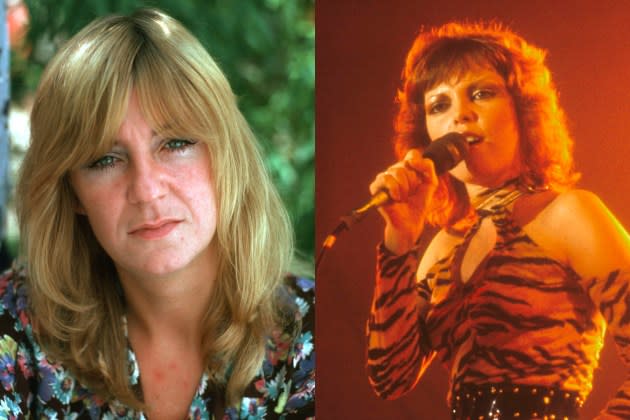Christine McVie Estate and Pat Benatar Sell Catalogs With Biggest Hits
- Oops!Something went wrong.Please try again later.
- Oops!Something went wrong.Please try again later.

Christine McVie’s estate and Pat Benatar have both closed deals to sell rights to their music to the acquisition firm HarbourView Equity Partners, the company tells Rolling Stone.
McVie’s estate has sold her stake in Fleetwood Mac’s recorded music, which includes shares in hits like the McVie-sung tracks “Songbird” and “Say You Love Me,” along with other band staples “Go Your Own Way,” “The Chain” and “Dreams.” Benatar — as well as her longtime musical partner and husband Neil Giraldo — sold an unspecified stake in both their recorded music and publishing rights. (In an interview, Harbourview CEO Sherrese Clarke Soares declined to give financial details on both purchases.)
More from Rolling Stone
Half Of Bandcamp's Work Force Laid Off After Songtradr Acquisition
Hipgnosis Songs Group CEO Kenny MacPherson Placed on Leave Following Sexual Assault Claim
The McVie estate deal marks yet another member of Fleetwood Mac to sell their rights since the acquisition boom began in the late 2010s. As Rolling Stone previously reported, Mick Fleetwood similarly sold his stake in the band’s recordings to BMG in 2021, while Lindsey Buckingham sold his publishing catalog to Hipgnosis the same year. Stevie Nicks sold a majority stake in her publishing catalog to Primary Wave in 2020. The McVie deal comes nearly a year after the singer died in November 2022 at 79.
“She’s iconic. Christine wrote those beautiful, melodic pop songs, and it was Christine who really kept them together as Fleetwood Mac’s guiding star,” Clarke Soares says. “Being able to participate in the legacy of Fleetwood Mac but also to align with a female rock icon as a female-owned and run firm doesn’t happen every day, it’s special. Christine’s no longer with us, but she was obviously such a major and important force in the world of rock and roll.”
Through the Benatar deal, Harbourview is buying a cut in one of the best-selling catalogs of the late 1970s and Eighties, with hits like “Hit Me With Your Best Shot,” “We Belong,” “Love is a Battlefield” and “Heartbreaker.” Benatar and Giraldo were inducted into the Rock & Roll Hall of Fame together in 2022.
Harbourview Equity has been one of the busier firms in the music acquisition space since its launch two years ago. But while legacy rock acts have drawn the most attention in the space as older superstars like Bob Dylan, Bruce Springsteen and Tina Turner exchanged their works for major upfront checks, many of Harbourview’s biggest deals came from Latin, hip-hop and country, three genres that fell under the radar to rock for acquisitions in the past several years but have started to heat up now.
Hip-hop hadn’t drawn as many buyers in the earlier days of the catalog hikes in part because investors often focus on mature catalogs that have less risk in depreciating in value as they grow older. But as Soares says, plenty of older hip-hop has matured enough to be stable, its demographic has more income than when the music first released, and it still has room to grow in the streaming era, which she says makes the music a promising asset.
‘We’re going to look at what people are listening to and how that showing up and translating in cashflow ultimately. And it just so happens to be really awesome stuff like Nineties R&B, hip-hop and Latin music,” Soares says.
“I hate to say it, but we’re old,” she continues with a chuckle. “I grew up on Nineties hip-hop and R&B, and now we are the new standards on the radio. If I will brag about Gen X for a minute, we are old enough but technologically enabled enough that you see our habits moving from old formats into new formats and also having disposable income to spend. There’s been so much emphasis on buying 1960s and Seventies music, and while I think it’s important, I think now there’s just a generational shift and you get these audiences mushrooming and wanting to experience this other music.”
Best of Rolling Stone
